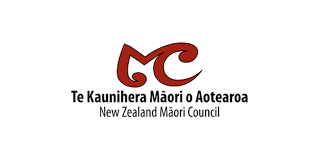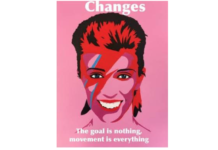This morning, the Waitangi Tribunal released its report into the COVID-19 claim brought by the New Zealand Māori Council (NZMC). The report upholds the NZMC’s claim that the Government’s response to the COVID-19 pandemic breached the Treaty of Waitangi. The Tribunal has urged the Government, in the strongest terms, to urgently fix this issue.
The NZMC were the claimants before the Waitangi Tribunal. During the hearing the NZMC conducted good faith discussions with the Government to find a new way for Māori led solutions to the pandemic to be supported and implemented. This led to an agreement to establish a new structure known as Ngā Mana Whakahare a COVID-19 (NMWC19). The NZMC remains very positive about this development and believes it can be used to address the problems identified by the Tribunal.
Two months ago, the Government announced that it would move New Zealand to a new protective framework (the traffic light system) without any target for Māori vaccination rates. After failing to persuade the Government to take a different approach, the NZMC filed a claim before the Waitangi Tribunal and asked it to hold an urgent inquiry. On 23 November, the Tribunal agreed, and a hearing was conducted on 6-10 December.
As the Tribunal explains in its report, conducting an urgent inquiry of this importance required the cooperation of all parties including the Crown. The NZMC is particularly grateful for the mammoth effort of its legal team consisting of Felix Geiringer, Phillip Cornegé, Odette Ford Brierly, and Donna Hall, and its witnesses: Dr Danny de Lore, Dr Jin Russell, Associate Professor Siouxsie Wiles, Dr Teuila Percival, Dr Erik Andersen, Dr Owen Sinclair, Len Cook, Charles Waldegrave, George Ngātai, Peter Fraser, Mike Smith, and Wanda Brljevich.
“The decision was a complete vindication of the Māori Council’s claim. Every alleged breach has been upheld. The recommendations are completely in line with what the Māori Council put forward.” said Peter Fraser, NZMC National Secretary.
The Government breached its Treaty obligations by adopting an age-based vaccine rollout, found the Tribunal. That decision went against the advice of its officials who told the Government that younger Māori were more at risk than older non-Māori. Māori were also disadvantaged because of a younger population meaning that they were 20% behind the national vaccination rate by the time vaccines were made available to all.
The Tribunal also found that the Government breached the Treaty in its decision to move to the new protective framework. The unanimous advice the Government received from every medical and scientific advisor it consulted, from every Māori organisation it consulted, and from every one of its own officials in its own Ministries, was not to move to the new framework until higher levels of vaccination had been achieved amongst Māori.
The Crown’s engagement with Māori throughout the pandemic was found by the Tribunal to have fallen short of what was required by the Treaty.
The result of these breaches is that Māori are suffering significantly worse impacts from the COVID-19 pandemic. As of today, in the latest outbreak, Māori (who make up 16.5% of the population) account for 44% of cases and 48% of deaths. This means Māori are currently 4.6 times more likely to die from COVID-19 than non-Māori. The Tribunal said, “The statistics speak for themselves”.
The Tribunal has made a series of urgent recommendations aimed at remedying this disparity as quickly as possible. It has said that:
“The Crown must pursue all these recommendations, as active protection dictates, to the fullest extent practicable and as matters of extreme urgency. The Crown will remain in active Treaty breach until it ensures an equitable vaccine rollout, which protects the Māori population equitably.”
With respect to NMWC19, the Tribunal has said it should not be a new layer of bureaucracy. The NZMC agrees. It was created to be a new channel of communication between the Government and Māori organisation, not a gateway. The Tribunal has set out 8 recommendations of how the Government should engage with NMWC19. The NZMC wholeheartedly agrees with these and hopes that the Government will be willing to immediately incorporate them into its dealings with the new structure.
The NZMC hopes that with NMWC19 up and running, it will now be easier for all Māori groups to work with the Government to implement the Tribunal’s important and urgent recommendations.
“The Māori Council is extremely grateful to the Tribunal for conducting this inquiry on such an urgent basis. The Tribunal has heard our claim and given the Government its wisdom and guidance. Our recent work with the Government through NMWC19 gives us a belief that it is ready to listen.” said Peter Fraser.





Regardless of the politics, the logistics of prioritising one ethnic group in the current pandemic and in future people-damaging occurrences are daunting.
For a start, the collection of census stats may need to be rethought and broadened. Government departments captured by the craziness of identity politics and weighted in mediocrity will need to address this. Alternatives such as those imposed upon indigenous peoples in Nth America, and to a certain extent, and sometimes by happenstance in colonial New Zealand, of concentrating ethnic groups in fairly exclusive geographical locations are unrealistic and completely unacceptable. Our whole societal structure needs to be rethought in view of the challenging roads ahead. Politicians do not have the expertise to be doing this, and opportunists could be even worse.
Comments are closed.